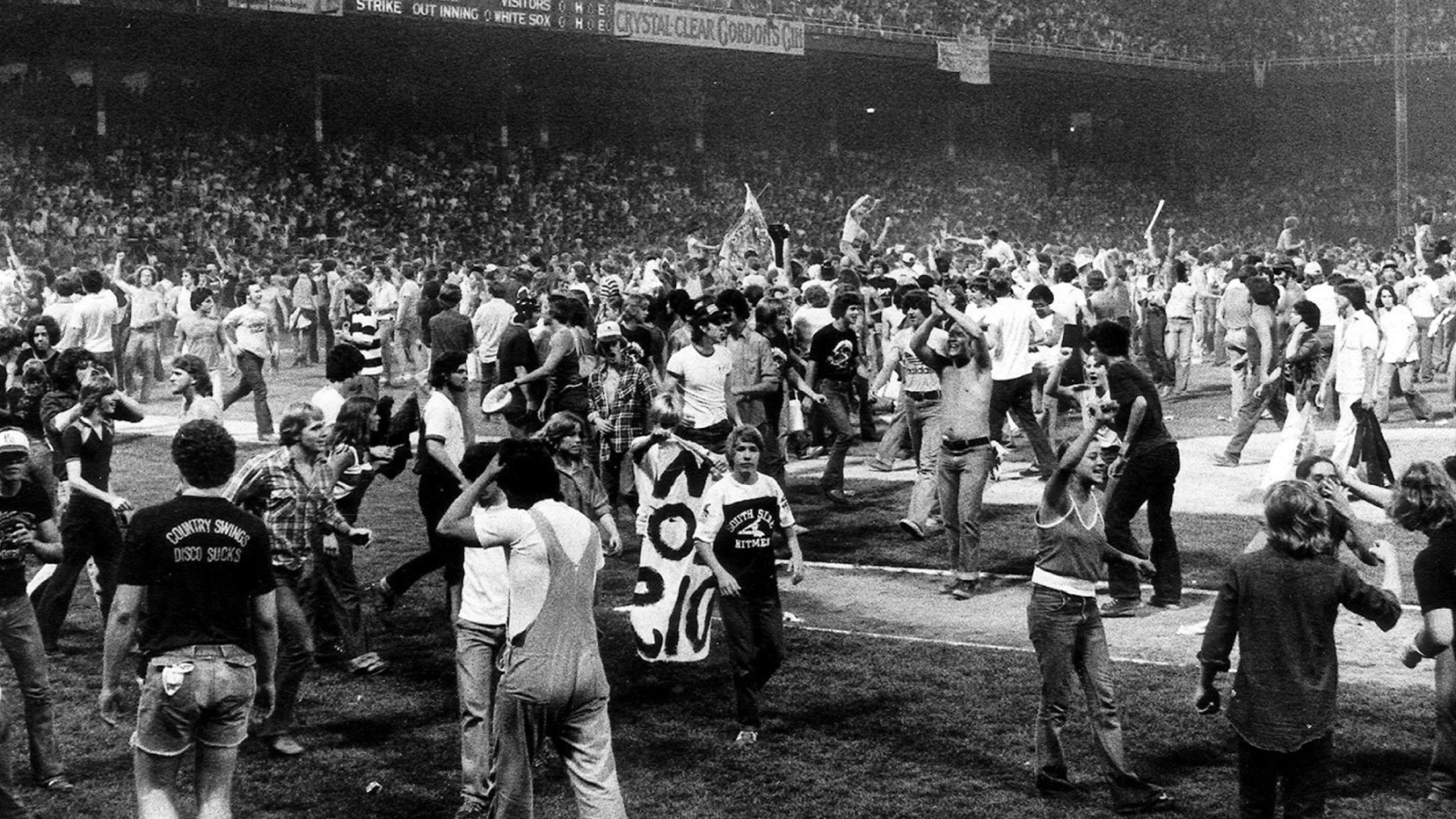
Chicago house pioneer Vince Lawrence recalls witnessing Disco Demolition Night as a teenager, and later recognizing the racist undertones of the infamous incident, in a new clip from the fascinating documentary, Move Ya Body: The Birth of House, premiering on Rolling Stone.
Directed by Elegance Bratton, Move Ya Body digs into the origins of house music on the South Side of Chicago, where Lawrence and his peers crafted a new sound with emerging synth technology and perfected it in underground clubs like the Warehouse. The birth of house music in the 1980s was also, in part, a response to the heyday, and unceremonious downfall, of disco, another genre that had distinctly Black origins before garnering more mainstream attention via white artists and culture. (See: The Bee Gees and Saturday Night Fever.)
Lawrence happened to be working as an usher at Chicago’s Comisky Park on Disco Demolition Night in 1979, when a largely white crowd rioted after blowing up a crate of disco records. Lawrence was the victim of racist violence that night too, and an out-of-court settlement allowed him to buy a Moog synthesizer and pave the way for the creation of house music.
But in the new clip from Move Ya Body, Lawrence admits that, at the time, he wasn’t able to perceive the racism and anti-Blackness fueling Disco Demolition Night. As he puts it, “I was just not accepting of the reality of racism, of real racism.”
Lawrence continues: “I feel now that a lot of the angst about disco was really about Blackness. Because people were on the radio describing things that were just Black. The gold chains was a symbol for us that we were no longer bound by chains. Bell-bottom pants and the leisure suits were a way for us to feel together, when we had matching tops and bottoms. All of these things were being said in a way that was looking down on everything that brought us joy.”
In an email to Rolling Stone, Bratton calls Disco Demolition Night an “ideological lynching” that was “meant to remind Blacks, queers, and femmes to stay in their place.” Pointedly, he adds: “The same forces that conspired to destroy Black dance music in the late 1970s are alive and well. Today, they call themselves MAGA… It feels so easy to just give these lunatics what they want but in Vince there is a powerful rebuke of the status quo. It’s rooted in music. Talk about non-violent resistance!”
Move Ya Body is set to screen Friday, June 13, as part of the Tribeca Film Festival, with additional showings scheduled through the weekend. Along with Lawrence, the film features interviews with other house luminaries including Marshall Jefferson, “Screamin’” Rachael Cain, Byron Stingily, Lady D, Kevin Aviance, and Lori Branch.
In explaining why he wanted to make Move Ya Body, Bratton says it was as much about his love of music as it was a desire to “make sure the pioneers of house can get their roses while they are still here.”
He adds, “If you look up the top EDM DJ’s in the world, they are white men mostly from Europe. House music like just about every genre of American music starts in the Black community… House history is black history, it’s queer history, and it’s feminist history. I want to show through Move Ya Body that partying is political. Going to a club and dancing to the same beat as someone different from you is a radical act. It shakes oppressive power to the core to think that we can find that commonality through our differences. If they weren’t scared of our collective power then they wouldn’t spend so much time trying to keep us apart.”